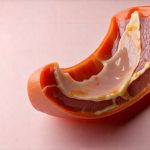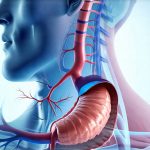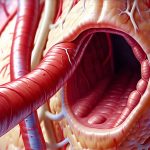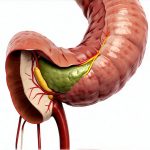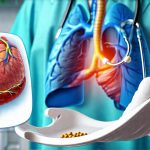Acid reflux, occasional heartburn – most of us experience these uncomfortable sensations from time to time after a particularly large meal or spicy dish. It’s generally not something that causes significant worry when it happens infrequently. However, chronic acid reflux, or gastroesophageal reflux disease (GERD), is different. While many people self-manage mild GERD with lifestyle changes and over-the-counter medications, recognizing when your symptoms are escalating is crucial for preventing long-term complications and seeking appropriate medical attention. Ignoring worsening symptoms can lead to more serious health issues, including esophageal damage and difficulty swallowing.
This article will explore the subtle and not-so-subtle signs that indicate your acid reflux may be getting worse. It’s important to remember this information is not a substitute for professional medical advice; it’s intended to help you become more aware of potential changes in your condition so you can discuss them with your doctor. Understanding the nuances of worsening acid reflux empowers you to take proactive steps toward managing your health and well-being, ensuring that occasional discomfort doesn’t transform into a chronic problem impacting your quality of life. Are you getting enough variety in your diet can have a huge impact on symptoms.
Recognizing Escalating Symptoms: Beyond Basic Heartburn
Heartburn is often the first symptom people associate with acid reflux, but it’s just one piece of the puzzle. When acid reflux worsens, the nature of heartburn itself can change—becoming more frequent, intense, or lasting longer periods. However, a host of other symptoms may emerge or become more pronounced, signaling that your condition is progressing beyond typical occasional discomfort. These changes aren’t always dramatic; they can be gradual and easily dismissed as stress or dietary issues at first. Paying close attention to these subtle shifts is key to early intervention.
Beyond the familiar burning sensation in your chest, you might start experiencing regurgitation – a sour or bitter taste in the back of your mouth caused by stomach acid flowing up into your esophagus. This isn’t just an unpleasant experience; it’s a clear sign that reflux events are becoming more significant and frequent. Another indicator is difficulty swallowing, known as dysphagia. Initially, this might feel like food is getting “stuck” occasionally, but with worsening reflux, it can become more persistent and concerning. These symptoms often arise because the repeated exposure to stomach acid irritates and potentially narrows the esophagus over time. It’s also vital to be aware of atypical symptoms that aren’t directly related to the chest or throat. Some people experience chronic cough, hoarseness, or even asthma-like symptoms due to reflux irritating their airways. Others may develop a persistent sore throat or feel like they constantly need to clear their throat. These less obvious manifestations can make diagnosis more challenging, highlighting the importance of communicating all your experiences to your healthcare provider. Don’t assume a symptom isn’t related simply because it doesn’t seem “typical” for acid reflux. Understanding if low stomach acid is contributing can also be helpful.
Changes in Heartburn Characteristics
The way heartburn feels is often the first clue that something is changing. What started as occasional, mild discomfort after meals can evolve into a more persistent and severe burning sensation. Here are some specific changes to watch out for: – Increased frequency: Experiencing heartburn several times a week, or even daily, instead of just occasionally. – Greater intensity: The burning feeling becoming significantly stronger, requiring higher doses of antacids for relief. – Prolonged duration: Heartburn lasting for hours rather than minutes. – Nocturnal symptoms: Waking up at night with heartburn, often due to the horizontal position increasing reflux.
These changes indicate that the amount of acid reaching your esophagus is increasing or that your esophageal lining is becoming more sensitive. The increased acidity can also lead to inflammation and damage over time. Importantly, relying solely on antacids for frequent or severe symptoms isn’t a long-term solution; it masks the underlying problem without addressing the cause. A proactive approach involves identifying triggers and seeking medical guidance to determine the appropriate treatment strategy. A 7-day GERD diet plan can be a great place to start.
Associated Symptoms Beyond The Chest
Worsening acid reflux frequently manifests with accompanying symptoms that extend beyond the typical chest discomfort. These “associated” symptoms can be subtle initially, but they become more pronounced as the condition progresses. One common manifestation is dysphagia, or difficulty swallowing. This isn’t just a momentary sensation of food sticking; it’s a consistent struggle to move solid foods down your esophagus. Another indicator is odynophagia – painful swallowing. Unlike dysphagia, which focuses on obstruction, odynophagia involves actual pain during the act of swallowing.
Beyond these esophageal symptoms, pay attention to respiratory issues. Acid reflux can travel up into the airways, causing chronic coughs (often worse at night), wheezing, and even asthma-like symptoms. The persistent irritation from acid exposure inflames the bronchial tubes, leading to these respiratory complaints. Similarly, a hoarse voice or frequent throat clearing might indicate that acid is irritating your vocal cords. These seemingly unrelated symptoms could be directly linked to your worsening acid reflux. Recognizing signs of silent reflux can also lead you to better understand the condition.
When To Seek Medical Attention Immediately
While many changes in acid reflux can be managed with lifestyle adjustments and over-the-counter remedies, certain signs warrant immediate medical attention. Severe chest pain, especially if accompanied by shortness of breath, dizziness, or jaw/arm pain, could indicate a heart attack and requires emergency care. Don’t assume it’s “just heartburn.” Other red flags include: – Difficulty breathing – indicating acid aspiration into the lungs. – Bloody vomit or stool – suggesting esophageal damage or bleeding ulcers. – Unintentional weight loss – potentially linked to difficulty swallowing or reduced appetite due to discomfort.
These symptoms aren’t simply signs of worsening GERD; they represent potential complications that require prompt diagnosis and treatment. Delaying medical intervention can lead to more serious health problems, such as Barrett’s esophagus (a precancerous condition) or esophageal strictures (narrowing of the esophagus). If you experience any of these alarming symptoms, seek immediate medical evaluation to rule out other conditions and receive appropriate care. Remember that early detection and treatment are crucial for preventing long-term complications and maintaining your health. Acid reflux in children should also be addressed quickly, as it can impact their development. Finally, consider if food sensitivity is playing a role in your symptoms.


